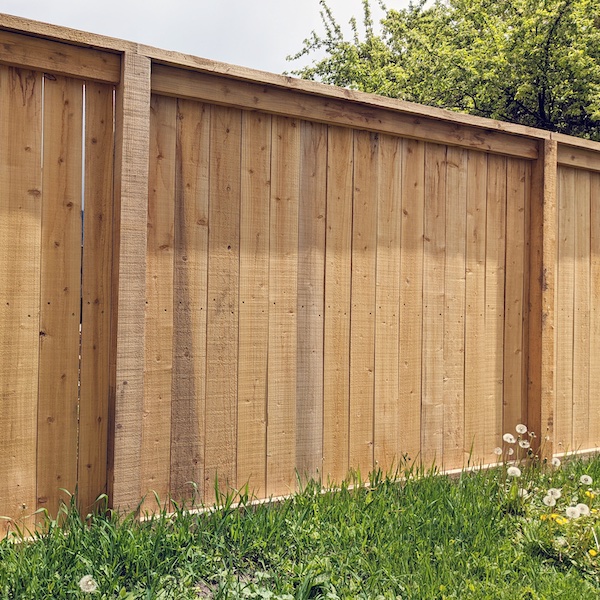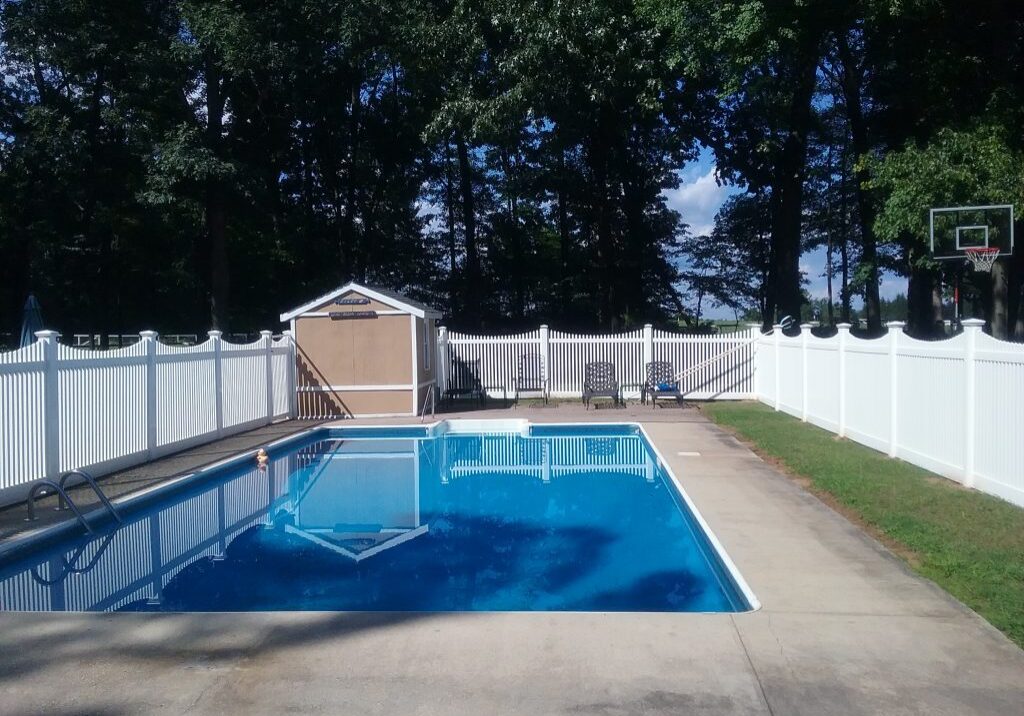All Categories
Featured
Choosing the best fence material for your residential property can be an overwhelming task with the range of options readily available. Whether you're intending to boost security, enhance personal privacy, or improve the curb allure of your home or business, the appropriate fence can offer multiple objectives. In this overview, we'll explore different fencing products, their benefits, and which options might be best suited for numerous demands.
Advantages:
Natural Feel And Look: Timber provides a cozy, all-natural visual that matches yards, grass, and other outside rooms. Personalized: You can paint or discolor wood surround any type of color, permitting for unlimited style possibilities. Personal privacy and Protection: When constructed as a strong panel, a wood fence can offer exceptional personal privacy and security. Downsides:
Upkeep Required: Timber fencings need regular maintenance to avoid rot, warping, and damages from bugs like termites. Susceptible to Weather Condition: Direct exposure to rain, sunlight, and snow can deteriorate the top quality of the timber with time, which implies you might need to reseal or change boards. Best For: Homeowners searching for a typical, adjustable fence with a natural look.
Benefits:
Long Lasting and Lasting: Vinyl is immune to the weathering that wood fencings experience, and it won't warp, crack, or fade. Reduced Maintenance: Unlike wood, vinyl doesn't need staining or sealing. Cleaning it is as straightforward as washing it with water. Selection of Styles: Plastic fence is available in many designs and colors, and some versions also imitate the look of wood. Drawbacks:
Higher First Expense: Vinyl fencings can be more expensive to set up compared to various other materials, such as timber or chain link. Prone to Fracturing: While durable, vinyl can come to be breakable and crack in very cool temperature levels or when struck with force. Minimal Personalization: Unlike wood, vinyl can't be quickly modified, so your layout choices are extra restricted. Best For: Homeowners who focus on reduced maintenance and lasting longevity, and that want to spend in a greater preliminary cost.
Benefits:
Budget-friendly: One of the most affordable fencing alternatives, making it perfect for large homes or locations calling for substantial coverage. Low Maintenance: Chain link fencings call for little to no maintenance beyond periodic cleansing and repair services. Sturdy and Secure: While not visually appealing, wire mesh fence are strong, hard to climb, and provide a high degree of protection. Drawbacks:
![]()
Lack of Personal privacy: A wire mesh fence does not provide much privacy unless you include slats or other adjustments. Industrial Look: The cord mesh might not enhance all property kinds, specifically residential homes or locations requiring an aesthetic touch. Best For: Huge properties or areas where budget is a top priority, or for those who need a solid, protected boundary without the need for personal privacy.
Advantages:
Strong and Secure: Steel fences supply exceptional security, as they are difficult to climb and give a robust barrier versus intruders. Long Lifespan: Steel fencings can last for decades, specifically when dealt with for rust and rust resistance. Stylish Visual: Wrought iron and steel fences include an elegant, traditional appearance to homes, gardens, or business properties. Negative Aspects:
Costly: Steel fences, especially functioned iron, tend to have a higher ahead of time expense than various other materials. Upkeep Needs: Steel and wrought iron fences might rust over time if not effectively maintained, needing periodic painting or therapy. Minimal Personal privacy: Steel fencings are typically open, so they do not use the personal privacy that strong fences like timber or vinyl can provide unless integrated with other materials. Best For: Those searching for a high-security, attractive option with a long life-span, especially for upscale or high-traffic areas.
Advantages:
![]()
Low Maintenance: Composite fence requires no painting, discoloration, or securing. It's easy to tidy with simply soap and water. Longevity: Immune to rot, insects, and weather condition, composite fences last much longer than standard timber. Eco-Friendly: Several composite products are made from recycled timber and plastic, decreasing environmental impact. Disadvantages:
Pricey: The preliminary cost of composite fence can be more than timber or vinyl. Restricted Modification: While readily available in numerous shades, composite fencings do not offer as several layout choices as timber. Heavy: Composite materials are usually much heavier than other kinds of fence, which can make installation a lot more challenging. Best For: Those that desire a low-maintenance, environment-friendly alternative that combines the look of timber with raised durability.
Final thought. Picking the right fence product for your home depends upon a range of variables, including your spending plan, visual preferences, privacy demands, and maintenance determination. Whether you choose the timeless charm of wood, the low-maintenance advantages of vinyl, the stamina of metal, or the environment-friendly toughness of composite, choosing the finest fence calls for mindful consideration of your property's one-of-a-kind requirements. By understanding the advantages and limitations of each material, you can make an enlightened decision that provides long-term value and satisfaction for your home.
- Wood Fencing. Timber secure fencing is a traditional option for several house owners as a result of its all-natural charm, flexibility, and ability to blend flawlessly with different architectural designs. Readily available in a variety of styles, consisting of personal privacy, cattle ranch, and picket rails, wood can be personalized with paint or discolor to match your desired visual.
Advantages:
Natural Feel And Look: Timber provides a cozy, all-natural visual that matches yards, grass, and other outside rooms. Personalized: You can paint or discolor wood surround any type of color, permitting for unlimited style possibilities. Personal privacy and Protection: When constructed as a strong panel, a wood fence can offer exceptional personal privacy and security. Downsides:
Upkeep Required: Timber fencings need regular maintenance to avoid rot, warping, and damages from bugs like termites. Susceptible to Weather Condition: Direct exposure to rain, sunlight, and snow can deteriorate the top quality of the timber with time, which implies you might need to reseal or change boards. Best For: Homeowners searching for a typical, adjustable fence with a natural look.
- Vinyl (PVC) Fence. Plastic fences have actually grown in popularity due to their low maintenance and resilience. Made from artificial plastic materials, plastic fences are immune to rot, fading, and pests, using a tidy, modern-day appearance with little upkeep.
Benefits:
Long Lasting and Lasting: Vinyl is immune to the weathering that wood fencings experience, and it won't warp, crack, or fade. Reduced Maintenance: Unlike wood, vinyl doesn't need staining or sealing. Cleaning it is as straightforward as washing it with water. Selection of Styles: Plastic fence is available in many designs and colors, and some versions also imitate the look of wood. Drawbacks:
Higher First Expense: Vinyl fencings can be more expensive to set up compared to various other materials, such as timber or chain link. Prone to Fracturing: While durable, vinyl can come to be breakable and crack in very cool temperature levels or when struck with force. Minimal Personalization: Unlike wood, vinyl can't be quickly modified, so your layout choices are extra restricted. Best For: Homeowners who focus on reduced maintenance and lasting longevity, and that want to spend in a greater preliminary cost.
- Chain Link Fencing. Chain link fences are an affordable option for those searching for safety and security without the high cost. Generally used in commercial residential properties, parks, and huge suburbs, chain web link fences supply a reliable limit and are available in a range of elevations.
Benefits:
Budget-friendly: One of the most affordable fencing alternatives, making it perfect for large homes or locations calling for substantial coverage. Low Maintenance: Chain link fencings call for little to no maintenance beyond periodic cleansing and repair services. Sturdy and Secure: While not visually appealing, wire mesh fence are strong, hard to climb, and provide a high degree of protection. Drawbacks:

Lack of Personal privacy: A wire mesh fence does not provide much privacy unless you include slats or other adjustments. Industrial Look: The cord mesh might not enhance all property kinds, specifically residential homes or locations requiring an aesthetic touch. Best For: Huge properties or areas where budget is a top priority, or for those who need a solid, protected boundary without the need for personal privacy.
- Steel Secure Fencing (Light Weight Aluminum, Steel, Wrought Iron) Metal fences, such as aluminum, steel, and wrought iron, are preferred for their safety and security, resilience, and toughness. These materials are frequently utilized in high-security business homes, upscale houses, and those seeking a sophisticated, decorative look.
Advantages:
Strong and Secure: Steel fences supply exceptional security, as they are difficult to climb and give a robust barrier versus intruders. Long Lifespan: Steel fencings can last for decades, specifically when dealt with for rust and rust resistance. Stylish Visual: Wrought iron and steel fences include an elegant, traditional appearance to homes, gardens, or business properties. Negative Aspects:
Costly: Steel fences, especially functioned iron, tend to have a higher ahead of time expense than various other materials. Upkeep Needs: Steel and wrought iron fences might rust over time if not effectively maintained, needing periodic painting or therapy. Minimal Personal privacy: Steel fencings are typically open, so they do not use the personal privacy that strong fences like timber or vinyl can provide unless integrated with other materials. Best For: Those searching for a high-security, attractive option with a long life-span, especially for upscale or high-traffic areas.
- Compound Secure fencing. Composite fence integrates wood fibers and plastic to produce a product that simulates the look of timber but is much more sturdy and simpler to maintain. It's an eco-friendly choice made from recycled products, making it both practical and sustainable.
Advantages:

Low Maintenance: Composite fence requires no painting, discoloration, or securing. It's easy to tidy with simply soap and water. Longevity: Immune to rot, insects, and weather condition, composite fences last much longer than standard timber. Eco-Friendly: Several composite products are made from recycled timber and plastic, decreasing environmental impact. Disadvantages:
Pricey: The preliminary cost of composite fence can be more than timber or vinyl. Restricted Modification: While readily available in numerous shades, composite fencings do not offer as several layout choices as timber. Heavy: Composite materials are usually much heavier than other kinds of fence, which can make installation a lot more challenging. Best For: Those that desire a low-maintenance, environment-friendly alternative that combines the look of timber with raised durability.
Final thought. Picking the right fence product for your home depends upon a range of variables, including your spending plan, visual preferences, privacy demands, and maintenance determination. Whether you choose the timeless charm of wood, the low-maintenance advantages of vinyl, the stamina of metal, or the environment-friendly toughness of composite, choosing the finest fence calls for mindful consideration of your property's one-of-a-kind requirements. By understanding the advantages and limitations of each material, you can make an enlightened decision that provides long-term value and satisfaction for your home.
Latest Posts
Uncover Affordable Auto Repairs with Montclare’s Limited-Time Service Specials
Published May 28, 25
1 min read
Recognizing When Your Car Needs Skilled Auto Repair at Montclare Auto Repair
Published May 26, 25
1 min read
Find Out Reduce Expenses on Car Maintenance with Montclare Auto Repair’s Special Deals
Published May 23, 25
1 min read
More
Latest Posts
Uncover Affordable Auto Repairs with Montclare’s Limited-Time Service Specials
Published May 28, 25
1 min read
Recognizing When Your Car Needs Skilled Auto Repair at Montclare Auto Repair
Published May 26, 25
1 min read
Find Out Reduce Expenses on Car Maintenance with Montclare Auto Repair’s Special Deals
Published May 23, 25
1 min read